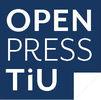Homo Ludens and the Abyss
Johan Huizinga’s Homo Ludens (1938) suggests that play helps humans navigate the challenges and uncertainties of life (“the abyss”, or the potential for decline, chaos and meaninglessness) by providing a structured, meaningful, and bounded cultural space where they can explore and create. At the same time, Huizinga observes that play can become cluttered with seriousness, competitiveness, silliness, and other factors that detract from its inherent joy, community-building and love of freedom.
This shift can be seen as a “loss of nature” in the sense that the playful spirit can be overshadowed by external pressures and a focus on results rather than the inherent pleasure of play itself. In this day and age, Homo Ludens stands at a crossroads, with one way leading to apparent collapse of playfulness in the idealistic sense of Huizinga’s masterpiece. The aim of this conference and/or workshop is to discuss new perspectives for a future Homo Ludens, which can possibly lead to a journal article in the peer-reviewed diamond Open Access journal Into the Magic Circle.
IMC welcomes approaches from the social sciences and humanities domain to reflect on the phenomenon and philosophy of play. Scholars are invited to share their thoughts on this subject during the colloquium. If you are interested to contribute, you can send in an abstract (before august 1, 2025) to: d.rutten@tilburguniversity.edu.
The colloquium will be held on 31 October 2025 in Zwijsen building (Z) on the campus of Tilburg University, 9.30 - 16.00.


